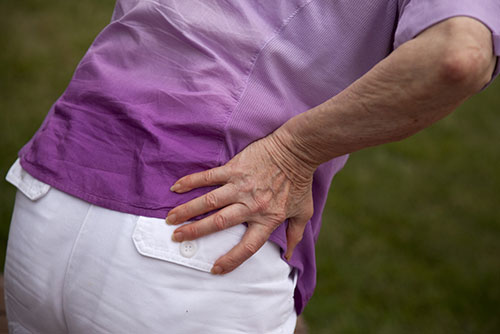What is Arthritis ?
Arthritis is a major cause of disability and handicap in Australia affecting people of all ages and walks of life. Arthritis is not a single condition.
Arthritis literally means inflammation of the joint.
There are over 150 kinds of arthritis, all of which affect one or more joints in the body. The most common types of arthritis are:

- (OA) Osteoarthritis
- (RA) Rheumatoid arthritis
- Fibromyalgia
- Lupus
- Septic arthritis
- (JIA) Juvenile idiopathic arthritis
- Gout, which account for 90% of all arthritis cases.
One in one thousand children are diagnosed with juvenile arthritis, while it is estimated that three in every thousand children live with the condition but remained undiagnosed.
Arthritis is often misinterpreted as simply a disease which affects elderly people, when in fact 60% of those who are diagnosed with arthritis are between the ages of 15 – 60 years.
Arthritis affects 3.4 million Australians, 16.7% of the population. Of the proportion of Australians affected, 60.4% are women. 60% of all people living with arthritis are of working age.
Causes of Arthritis Can Be
Due to the fact that there are over 150 different types of arthritis, there is no one single cause or list of causes for arthritis. Often several factors contribute to an individual developing this common problem.
Types of Arthritis
Arthritis causes pain, loss of movement and sometimes swelling. This disease also can affect other parts of the body.
Some types of arthritis are:
Osteoarthritis, is the most prevalent form of arthritis.Osteoarthritis is a disease that affects joints in the body and is characterised by damage to the surface of the joint. The main symptoms are pain, and sometimes mild stiffness. The condition is sometimes referred to as osteoarthrosis, arthosis or degenerative joint disease. The cartilage that covers the ends of bones in the joint deteriorates, causing pain and loss of movement as the bone begins to rub against bone.
Rheumatoid arthritis, is one of the most serious and disabling types oaffecting mostly women. Rheumatoid arthritis, is an autoimmune disease in which the joint lining becomes inflamed as part of the bodys immune system activity, symptoms such as pain and swelling in the joints and stiffness in the mornings may occur.
Gout, is often said to be the most painful of all the rheumatic diseases, Although it can’t be cured, it can be successfully treated. Gout can affect men of any age. Women rarely develop it before the menopause, but may do so as they age. So, with people living longer, there are more women with gout than previously. A tendency to attacks of gout may be inherited from a parent or a grandparent.
People get gout because there is something unusual about the chemical processes that take place within the body. A substance called urate builds up as crystals in the joints, especially the big toe. Fortunately, gout almost always can be completely controlled with medication and changes in diet.
Ankylosing spondylitis, is an inflammatory condition that affects the joints of the spine. Spondylitis simply means, inflammation of the spine. As the inflammation dies down, new bone forms replacing the more flexible tendons and ligaments between the vertebrae. Eventually the individual bones of the spine may link up (fuse) resulting in stiffness of the spine. (ankylosis)
Juvenile arthritis, a general term for all types of arthritis that occur in children. Most children won’t have lasting problems from childhood arthritis. JIA doesn’t turn into rheumotoid arthritis in adulthood. And having juvenile idiopathic arthritis doesn’t mean that your child will go on to develop adult forms of arthritis.
Systemic lupus erythematosus (lupus), a serious disorder that can inflame and damage joints and other connective tissues throughout the body.
Scleroderma, a disease of the body’s connective tissue that causes a thickening and hardening of the skin.
Fibromyalgia, is a long term (chronic) condition that can cause widespread muscle pain. There aren’t usually any outward signs of fibromyalgia, but the pain and tiredness associated with this illness are very real, in which widespread pain affects the muscles and attachments to the bone. It affects mostly women.
Preventing Arthritis
As the specific causes of the different types of arthritis remains unclear, it is difficult to say what may assist in the prevention of the development of arthritis. However, listed below are a few steps which may be beneficial in reducing the effects of arthritis.
- Maintain appropriate weight.
- Protect joints from ioveruse and injuries.
- Regularly exercise to maintain healthy bones, muscles and joints. Obviously, regular Physiotherapy care is of benefit too, ensuring optimal spinal/joint range of movement and flexibility.
- Eat a healthy diet as nutrients are vital for joint health.
- Hydrate your body. Water makes up 70 percent of the cartilage in joints and plays a major role in the lubrication and shock absorbing properties of healthy joints.

